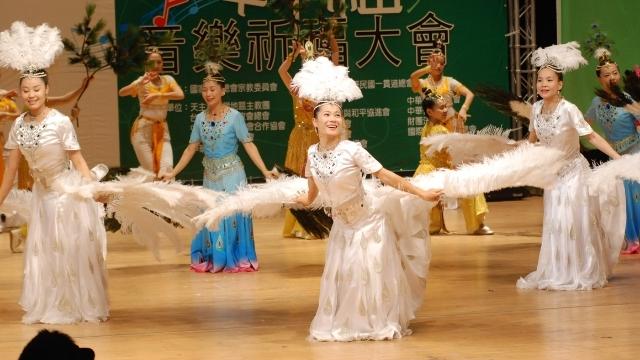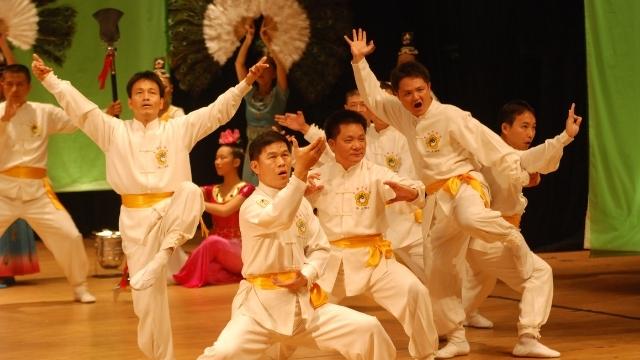11/10/2021MELISSA WU
As the Tai Ji Men case proved, manipulating the media for political reasons is one of the most serious problems in our societies.
by Melissa Wu*
**A paper presented at the 2021 Parliament of the World’s Religions, at the session “Peace and Justice in Action: The Tai Ji Men Experience,” October 17, 2021.

An observation that has concerned me, especially during the time of social distancing due to the pandemic, is how the amount of negative information from media platforms that broadcast international crises without offering solutions induces stress and causes uncertainty in people’s sense of security. And as a media studies major graduate, I find this devastating and alarming for the wellbeing of our mental health.
The pandemic has accelerated the process of digitizing our sphere of life, and our society has become increasingly media-saturated. Media technology allows us to increase efficiency, access limitless information, and facilitate virtual communities. These advantages entail a shifting lifestyle, but also hints at the misleading and manipulating tendency of the media to serve unjust personal interests. The solution for this concern calls for people’s conscience and a deeper guidance through reconnecting with spiritual beliefs. Today I want to discuss the need to balance media technology and spirituality, illuminating how conscience can lead us to sustain a digital culture of love and peace.
Examining a case in Taiwan, we can witness how the media serves as a tool to distort reality for the public. Tai Ji Men Qigong academy, a traditional menpai of qigong and martial arts that promotes physical, mental, and spiritual health, was however falsely accused of raising goblins and tax evasion by immoral officials. In 1996, Prosecutor Hou, who led the investigation, accused the leader of Tai Ji Men without legitimate evidence.
He manipulated and abused the media during the process of investigation with his authority and privileged affiliation with the media. He violated the confidential nature of investigations, and maliciously released and spread false rumors and information about Tai Ji Men through media’s widespread scope of influence, harming the reputation of the academy.
The sway of public opinion created a situation of judgment before the trial, dividing the society based on biased media reports. This groundless accusation spiraled to a series of illegal tax bills that the leader of Tai Ji Men was illegally subjected to. Tai Ji Men dizi (disciples) give to their zhang-men-ren (master) money in “red envelopes” out of gratitude and the traditional culture of reverence for teachers. According to law, there is no obligation for taxation; yet the zhang-men-ren is still persecuted by tax bureaucrats and still suffers from defamation and suppression under corrupted authorities till this day. From this case, we can observe how detrimental it is when the media becomes a tool for those in power.

Censorship of media content can also be a form of injustice by hiding the truth. Throughout Tai Ji Men’s long and arduous legal processes, the defendants have finally received its non-guilty, tax-free verdict after ten years. However, the National Taxation Bureau, the NTB, claimed that the court’s ruling does not bind them. Illegal tax bills continued to burden and blackmail the academy. The Tai Ji Men case has persisted for nearly 25 years. Regarding these tax bills, Tai Ji Men has denounced the NTB’s exploitation and illegal process countless times by appealing to officials, writing letters to the President, and protesting on the streets.
Only a few of these issues and large-scale protests have been broadcasted on traditional mainstream news media. By overlooking and ignoring Tai Ji Men’s efforts, the mainstream media fails to provide the whole story and perspective of the Tai Ji Men case, misguiding the public’s perception. The role of the media should serve from a neutral perspective to distribute the truth impartially and to supervise the government, not concealing and censoring the truth for the interests of the authorities and becoming an accomplice in the violation of human rights.
Another way that the Internet and media can influence our perceptions is how the collection of user data allows algorithms to stimulate polarization of beliefs. Polarization refers to the phenomenon of being divided into “contrasting sets of opinions or beliefs.” When we use the Internet, our preferences and behavior are monitored and analyzed digitally to generate and suggest similar media contents. This positive reinforcement of similar information narrows and intensifies our views, reducing our acceptance of other perspectives. What’s even more alarming is how the media is inundated with both true and fake news, making it disorienting and difficult to differentiate between true and false.
As a volunteer of the Federation of World Peace and Love (FOWPAL), I was honored to have the opportunity to travel with the group to promote its message of love and peace. In our programs and conferences, we share our cultural ideas and conscience, discussing how to follow the call of conscience to achieve love and peace in our roles and responsibilities. Through exchanging ideas and experiences of diverse ethnicities and cultures, we enrich ourselves and become more understanding of one another. This mutual sharing connects cultures and ideas, establishing a bond and opening our minds and hearts to diverse voices, tolerating our differences and countering polarization.

Conscience is the innate voice within us that guides us to distinguish what is true and right. It is something embedded and innate within us, but has often been ignored due to the influence of our humanity and external factors. Religion has long served as a source of spiritual grounding and guidance for humans, and upholds positive values that aligns with our conscience. The merging of the two realms and internalizing the essence of conscience and religious virtues can guide us as we navigate the Internet and media, fostering a culture of love and peace.
This may sound abstract, but essentially it means to follow our conscience to differentiate between true and false, right and wrong, ultimately choosing consciously to do the right thing even when nobody is watching. For instance, we should not abuse the anonymous nature of social media to spread false or malicious information. Our screen and devices create the facade of a virtual world that does not seem to physically exist. However, we have to realize that the indirect receiver at the other end of the screen or device is another human being, that our words and actions will have incremental impacts.
As our society becomes ever-more interconnected and media-saturated, global communication through media and tech continues to direct how we consume and perceive information. In the era of technology advancement, it can be reassuring to consult spiritual guidance and to let our conscience cultivate a peaceful digital culture.
Source: Bitter Winter
